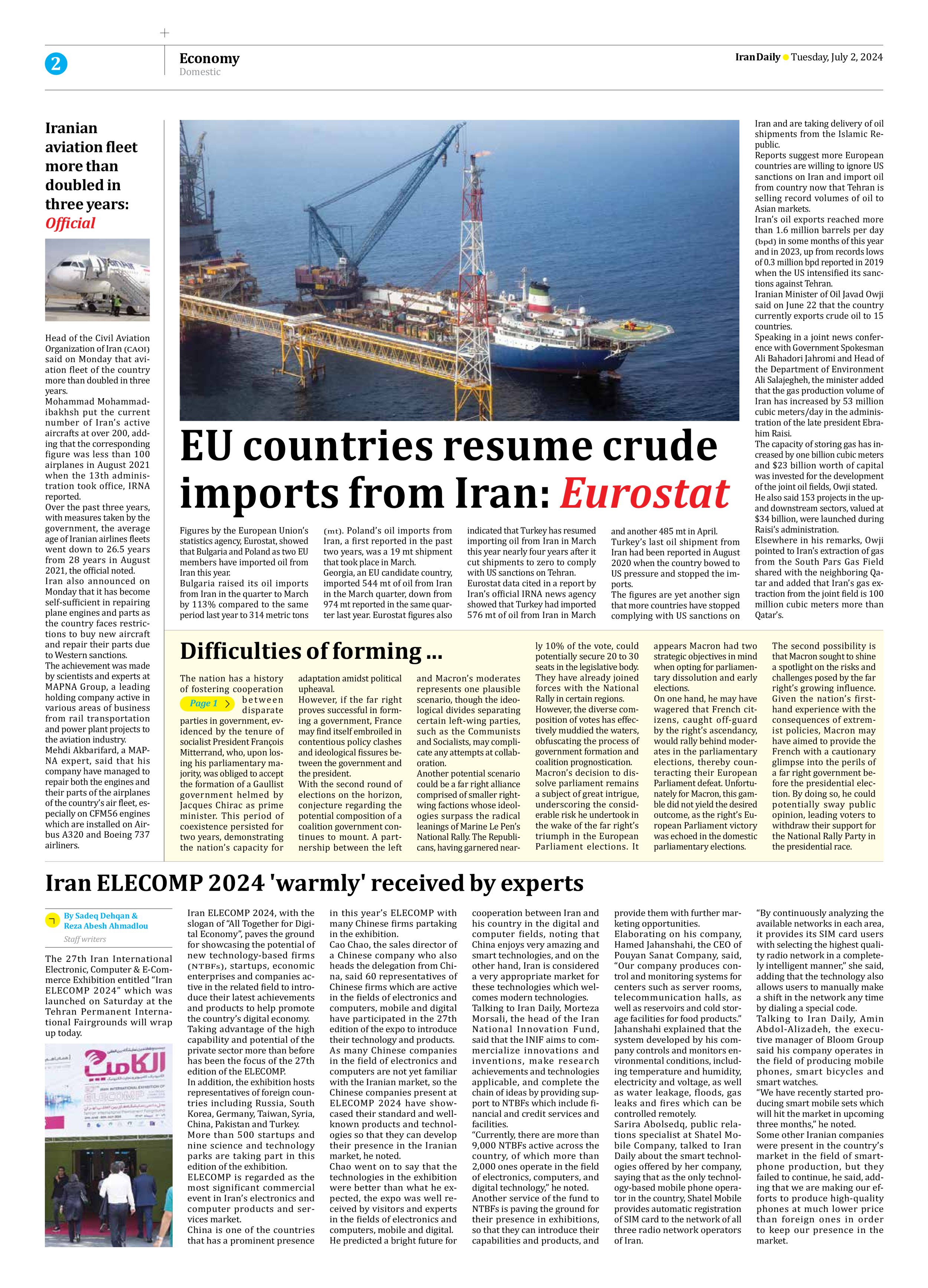
Difficulties of forming ...
Page 1
The nation has a history of fostering cooperation between disparate parties in government, evidenced by the tenure of socialist President François Mitterrand, who, upon losing his parliamentary majority, was obliged to accept the formation of a Gaullist government helmed by Jacques Chirac as prime minister. This period of coexistence persisted for two years, demonstrating the nation’s capacity for adaptation amidst political upheaval.
However, if the far right proves successful in forming a government, France may find itself embroiled in contentious policy clashes and ideological fissures between the government and the president.
With the second round of elections on the horizon, conjecture regarding the potential composition of a coalition government continues to mount. A partnership between the left and Macron’s moderates represents one plausible scenario, though the ideological divides separating certain left-wing parties, such as the Communists and Socialists, may complicate any attempts at collaboration.
Another potential scenario could be a far right alliance comprised of smaller right-wing factions whose ideologies surpass the radical leanings of Marine Le Pen’s National Rally. The Republicans, having garnered nearly 10% of the vote, could potentially secure 20 to 30 seats in the legislative body. They have already joined forces with the National Rally in certain regions.
However, the diverse composition of votes has effectively muddied the waters, obfuscating the process of government formation and coalition prognostication.
Macron’s decision to dissolve parliament remains a subject of great intrigue, underscoring the considerable risk he undertook in the wake of the far right’s triumph in the European Parliament elections. It appears Macron had two strategic objectives in mind when opting for parliamentary dissolution and early elections.
On one hand, he may have wagered that French citizens, caught off-guard by the right’s ascendancy, would rally behind moderates in the parliamentary elections, thereby counteracting their European Parliament defeat. Unfortunately for Macron, this gamble did not yield the desired outcome, as the right’s European Parliament victory was echoed in the domestic parliamentary elections.
The second possibility is that Macron sought to shine a spotlight on the risks and challenges posed by the far right’s growing influence. Given the nation’s firsthand experience with the consequences of extremist policies, Macron may have aimed to provide the French with a cautionary glimpse into the perils of a far right government before the presidential election. By doing so, he could potentially sway public opinion, leading voters to withdraw their support for the National Rally Party in the presidential race.







